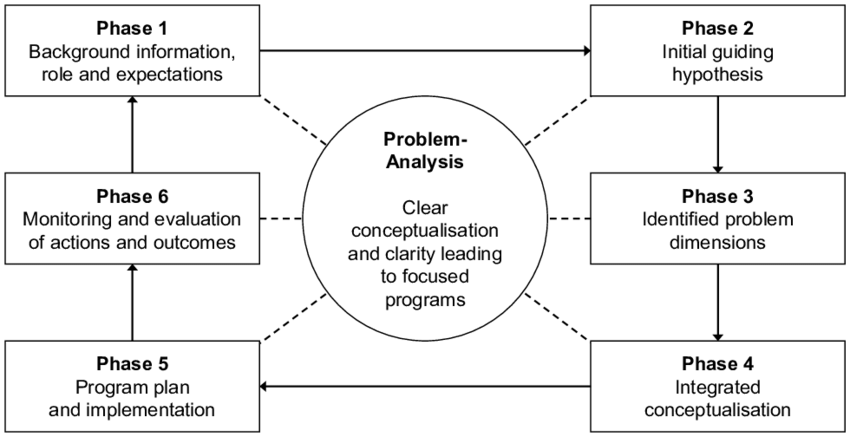
Problem Analysis Phase
The most important phase of the SDLC is the Problem Analysis Phase because Problem analysis is focused on identifying cause and effect. It can be very difficult to determine what is a cause and what is an effect. The analysis phase defines the requirements of the system, independent of how these requirements will be accomplished. This phase defines the problem that the customer is trying to solve. The deliverable result at the end of this phase is a requirement document. Ideally, this document states in a clear and precise fashion what is to be built. This analysis represents the “what” phase. The requirement document tries to capture the requirements from the customer’s perspective by defining goals and interactions at a level removed from the implementation details.

Steps of problem analysis
- Understand Your Problem
- Break The Problem Down Into Small Parts
- Define Problem Goals
- Decide How To Measure Progress Towards Goals
Understand Your Problem
- You must understand the issue, problem, or symptom you are experiencing before you can really try to figure out what to do about it. Understanding your problem requires that you take some time to identify the nature of your problem; what might be causing that problem and why and how it has become an issue for you.
Break The Problem Down Into Small Parts
- Even when you understand what your problem is, it may be too big and too well established for you to figure out how to fix all at once. Instead of trying to tackle the entire problem all at once, break it down into manageable parts. Then, make a plan for how you will fix or address each part separately.
You may also like Risk Management

Leave a Reply